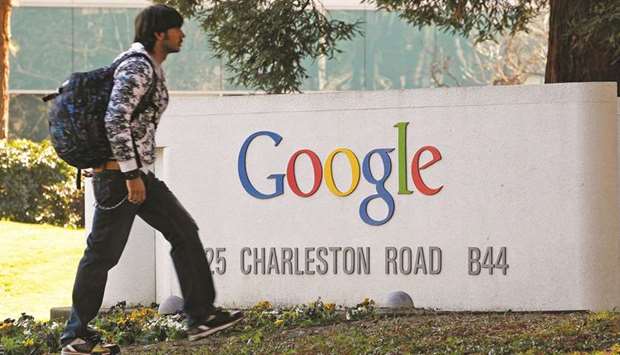The relationship between President Donald Trump and the largest US technology companies has often been frosty but a common opponent — France’s plan to tax US tech giants — will bring the two sides together, at least temporarily.
Alphabet Inc’s Google, Facebook Inc and Amazon.com Inc are all scheduled to testify in Washington today in support of the Trump administration’s efforts to potentially punish France for enacting a 3% tax on global tech companies with at least €750mn ($832mn) in global revenue and digital sales of €25mn in France.
France’s digital tax “is a sharp departure from long-established tax rules and uniquely targets a subset of businesses,” according to prepared remarks a Google representative is scheduled to deliver in the US Trade Representative’s Office hearing in Washington today. “French government officials have emphasised repeatedly that the” tax is intended to target foreign technology companies.
The US is probing France’s new tax, which French President Emmanuel Macron signed into law last month, using a tool that could be a precursor to new tariffs or other trade restrictions. US Trade Representative Robert Lighthizer could take action as soon as Aug. 26 when a comment period on the issue closes.
The effort to crack down on France has created common ground for Trump — who has called Google and Facebook “on the side of the Radical Left Democrats” and accused Amazon of avoiding taxes — and technology companies that are both worried foreign governments are looking to use American Corps as a way to collect additional tax revenue.
The US is looking to use France as an example to deter other countries from targeting American technology firms for tax dollars. The UK, New Zealand, Spain and Italy are among countries considering their own digital taxes, a move that US officials say could lead to companies being taxed multiple times on the same profits.
Trump has threatened to tax French wine or other goods in response to the digital tax. He tweeted last month “we will announce a substantial reciprocal action on Macron’s foolishness shortly!” The so-called 301 investigation, which looks into unfair trade practices, is the same tool Trump used to slap tariffs on China over alleged intellectual-property theft.
The US says countries considering their own version of a digital tax should focus on ongoing global talks with 130 countries on how to tax tech companies. Any future pact would likely create a whole new set of rules governing which countries have the right to tax the companies, which corporate profits are taxable, and how to resolve the inevitable disputes that would arise. A deal could be reached as soon as next year. Opposition to France’s tax is a rare area of bipartisan agreement in Congress. In a letter to Treasury Secretary Steven Mnuchin in June, Senators Chuck Grassley, an Iowa Republican, and Ron Wyden, an Oregon Democrat, urged the US to look at “all available tools under US law to address such targeted and discriminatory taxation.”
The lawmakers included a suggestion to use a section of the tax code that would double the rate of US taxes on French citizens and companies in the US.

A worker arrives at the Google headquarters in Mountain View, California. Google, Facebook Inc and Amazon.com Inc are all scheduled to testify in Washington today in support of the Trump administration’s efforts to potentially punish France for enacting a 3% tax on global tech companies with at least u20ac750mn ($832mn) in global revenue and digital sales of u20ac25mn in France.
